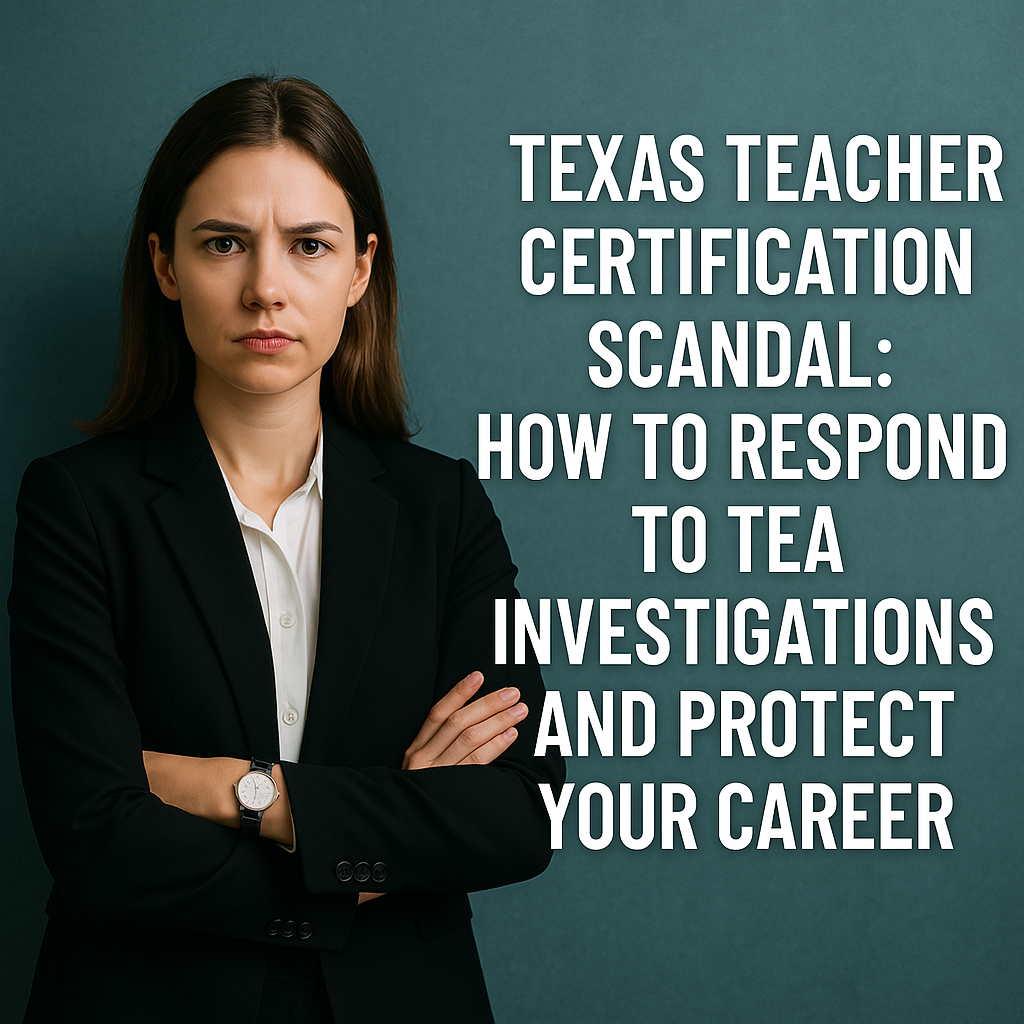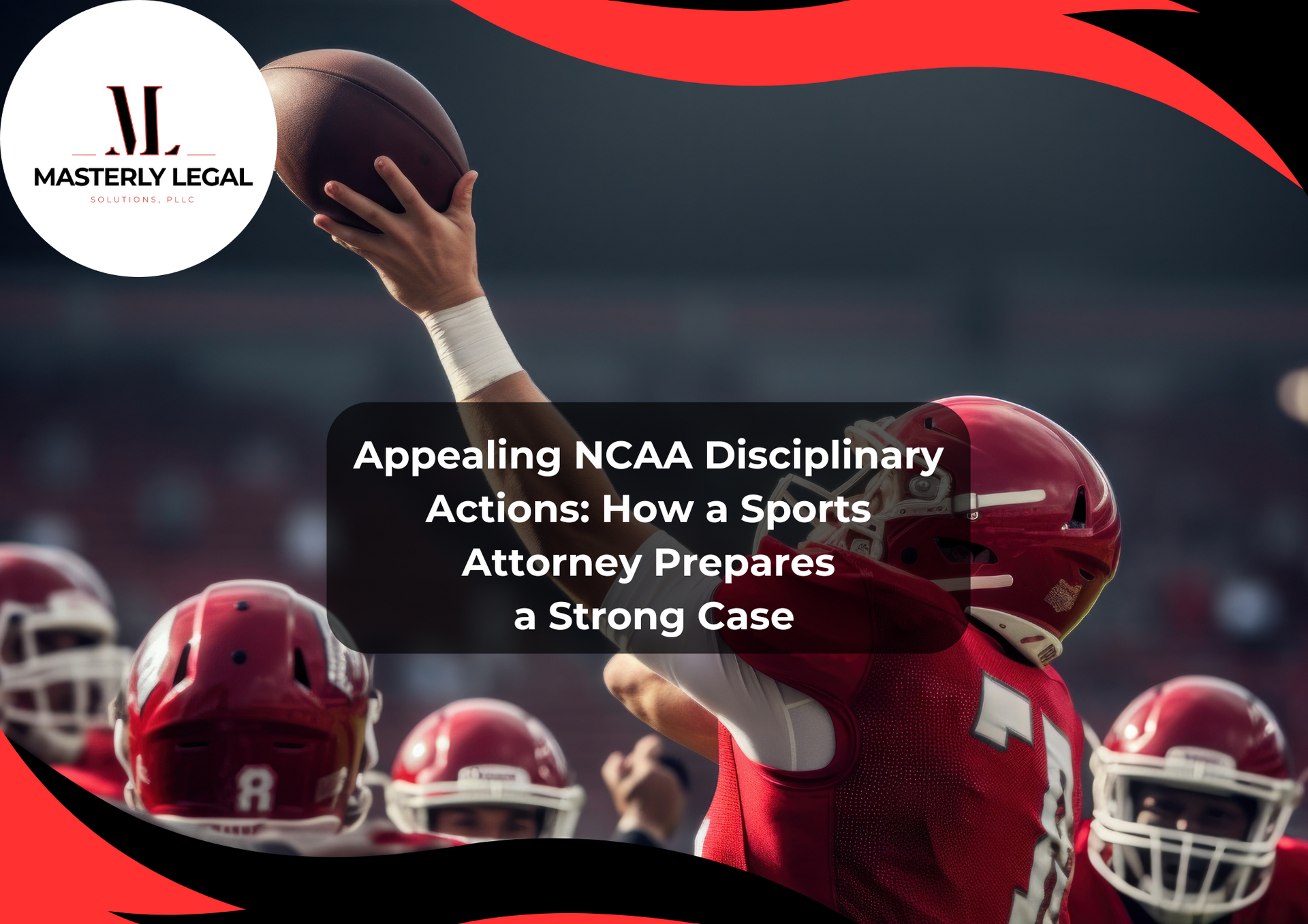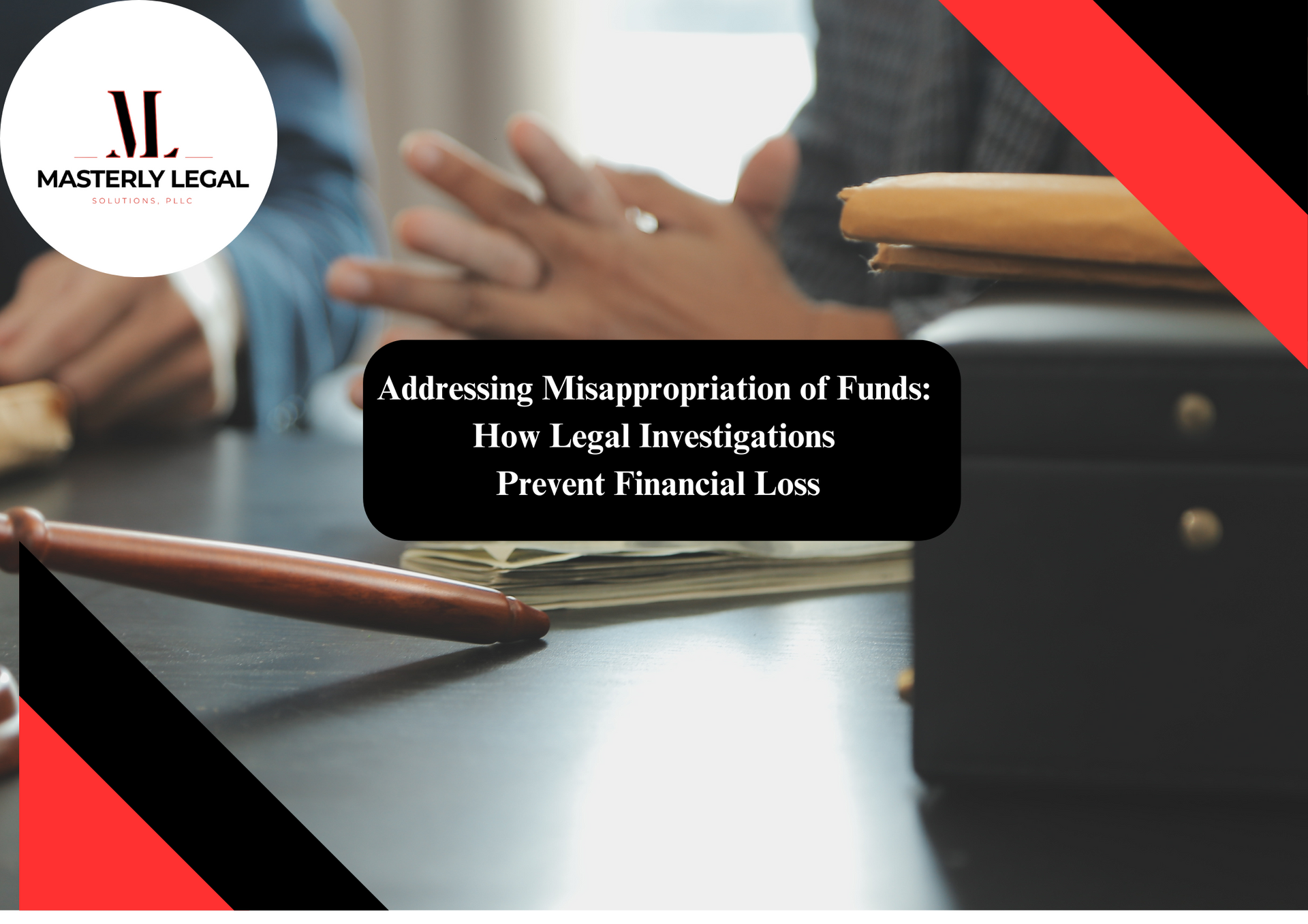Texas Teacher Certification Scandal: How to Respond to TEA Investigations and Protect Your Career
Your teaching certificate is more than just a document—it's your livelihood, your calling, and your future. But what happens when your hard-earned credential is suddenly at risk due to an investigation you didn’t see coming? In Texas, a recent wave of certification reviews has left many educators scrambling for answers and legal protection.
The Scandal: What Happened and Who’s Affected?
In 2024, a widespread scheme involving unauthorized test assistance, fraudulent transcripts, and illegal enrollment in certification programs came to light. The scandal led to an indictment of administrators and third-party operators who helped applicants bypass state certification requirements. In response, the Texas Education Agency launched a sweeping investigation, auditing teacher preparation programs, and flagging suspicious certification information.
Hundreds of teachers, many of whom were unaware of the improper activity, were notified of potential disciplinary action. This included the revocation of their teaching certificate, temporary suspensions, or being barred from teaching in Texas public schools altogether.
How to Get Your Texas Teacher Certification the Right Way
Understanding the official path to certify as a teacher in Texas is key—whether you're starting fresh or trying to clear your name.
Step 1: Educational Background
You must hold at least a bachelor’s degree from an accredited institution. If you’re pursuing advanced teaching roles or leadership positions, a master’s or graduate degree can improve your qualifications and hiring prospects.
Step 2: Complete an Educator Preparation Program
Choose a TEA-approved teacher preparation program, which includes:
- Coursework in professional education and pedagogy
- Subject area training (e.g., special education, middle grades, or bilingual)
- Student teaching or internships in classroom settings
You must complete the preparation program fully, with no shortcuts or unauthorized assistance. Texas offers both traditional university-based and alternative certification programs for non-traditional candidates, including graduate and undergraduate paths.
Step 3: Pass the Required Certification Exams
All prospective teachers must pass the state’s certification examinations, which may include:
- A professional education test
- A subject area content exam
- A pedagogy exam (PPR)
Achieving a passing score on each certification exam is required for licensure.
Step 4: Apply for Certification
Use the TEA’s online portal to apply and check status certificate applications. You can track your progress using the check status certificate lookup search feature.
Step 5: Background Check and Fingerprinting
As part of the licensure process, every applicant must undergo a national background check, including fingerprinting.
Step 6: Maintain Your Certificate
Once certified, classroom teachers must complete continuing professional education to renew their credentials and stay compliant with the state board of education.
Texas vs. Other States: How Does Certification Compare?
While the basic steps are similar nationwide, certification varies by jurisdiction. Let’s compare Texas with two other states:
Florida Certification
Florida offers both temporary and professional certificates. Teachers must pass the Florida Teacher Certification Examinations (FTCE) and complete a professional education course. Unlike Texas, Florida allows non-education majors to teach temporarily while completing a program.
New York (NYSTCE)
New York requires the NYSTCE, a state-approved teacher preparation program, and verification of transcripts. Like Texas, New York maintains a public certificate lookup system to verify credential status and view any disciplinary actions.
Reciprocity Between States
Texas offers reciprocity for out-of-state teachers with valid licenses, but you may still need to pass Texas-specific exams or submit additional documentation. The department of education in each state determines eligibility, and many states and territories have unique rules.

What To Do If You’re Named in the Scandal
If you received a letter or email from the TEA or discovered your name during a status certificate lookup search disciplinary inquiry, don’t panic—but don’t delay either.
Step 1: Verify Your Information
Use the TEA’s certificate lookup system to confirm your current certification status. Check for red flags such as suspension, investigation, or revocation notices.
Step 2: Gather Your Documents
Collect all relevant records including:
- Your transcript
- Letters of admission from your certification program
- Exam scores from your certification examinations
- Proof of program completion
- Employment records from school districts
Step 3: Do Not Respond Alone
Avoid submitting explanations or evidence without legal guidance. What you say can be used against you, even if your intentions were honest.
Step 4: Seek Legal Representation
An experienced education law attorney can:
- Request records from TEA on your behalf
- Communicate with investigators professionally and strategically
- Prepare you for interviews or administrative hearings
- Protect your license, credential, and job
Why Legal Representation Matters
Teachers facing investigations risk losing their certificate, job, and future ability to work in K-12 education. The process can be intimidating, but having a knowledgeable advocate levels the playing field.
How Masterly Legal Solutions Can Help
At Masterly Legal Solutions, we specialize in representing educators in high-stakes certification and licensure matters. Our team understands how teacher preparation programs, certification information, and state regulations intersect.
We’ve defended teachers against unjust accusations, administrative overreach, and wrongful inclusion in state investigations. Whether you're a special ed teacher, a recent graduate, or a mid-career professional trying to regain your teaching certificate, we’re here to help.
Our services include:
- Reviewing your certification history and verifying compliance
- Responding to TEA letters and preparing defense strategies
- Representing you in state administrative hearings
- Advising you on clearing your name from certificate lookup search disciplinary actions
Don’t Wait—Protect Your Teaching Future Today
You worked hard to become a certified teacher. Don’t let a flawed system take that away from you.
✅ Visit the TEA’s
certificate lookup to check your status
✅ Review your
certification requirements and exam history
✅ Contact Masterly Legal Solutions for experienced legal help
Whether you're in a teacher certification program, returning to teaching, or defending your license, we’re ready to guide you. Call us today or visit our website to schedule a confidential consultation.

Looking for Legal & Business Solutions? Contact Us Now
Fill in the form or call us to set up a meeting













